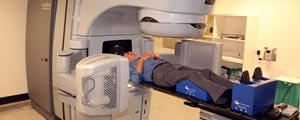
ZIMBABWE has only one radiation physicist in the public sector, a situation which has compromised effective diagnosis and treatment of cancer, a senior government official has said.
By Phyllis Mbanje
Addressing stakeholders attending a cancer dialogue in Harare last week, Lilian Muchena, the programmes manager in the Ministry of Health and Child Care’s department of Non-Communicable Diseases, said the shortage of radition physicist was a big blow to the health delivery system.
She the country’s sole remaining physicist was based at Parirenyatwa Hospital while the second one had been sent for further training in South Africa.
“It is the job of a skilled radiation physicist to make sure that the equipment is operating properly and that patients, doctors, and others are not overexposed to harmful radiation,” Muchena said.
A radiation physicist is key in radiotherapy (cancer treatment to destroy cancer cells without harming nearby healthy tissue) and is the one who ensures the safety and proper operation of medical devices that use radiation sources.
The staff shortage has caused the radiotherapy machine at Mpilo Hospital in Bulawayo to remain lying idle as there is no one trained to operate it.
Radiotherapy is critical in the treatment of cancer and has been known in some cases to effectively eliminate affected cells.
- Chamisa under fire over US$120K donation
- Mavhunga puts DeMbare into Chibuku quarterfinals
- Pension funds bet on Cabora Bassa oilfields
- Councils defy govt fire tender directive
Keep Reading
“This part of the cancer treatment is very important and works hand in hand with the other treatment options,” said information and evaluation officer for Cancer Association of Zimbabwe, Lovemore Makurirofa.
He said the therapy was capable of shrinking the affected cells and minimising pain.
“It can be offered at any stage of the treatment,” he said. Meanwhile Zimbabwe is still battling increased cases of cancer especially in children.
“According to research done by Kidzcanorganisation, in 2014 243 new cases of cancer in children were reported and 106 children died from cancer related illnesses,” lamented Muchena.
“Patients are going as far as India to seek treatment and yet we can advocate for the drugs to be brought here at a cheaper price,” she said.
Another challenge was the lack of a cancer policy to guide medical personnel.
Lifestyle changes like unhealthy diets, limited physical exercise, and excessive alcohol consumption have been cited as some of the causative factors for cancer.











